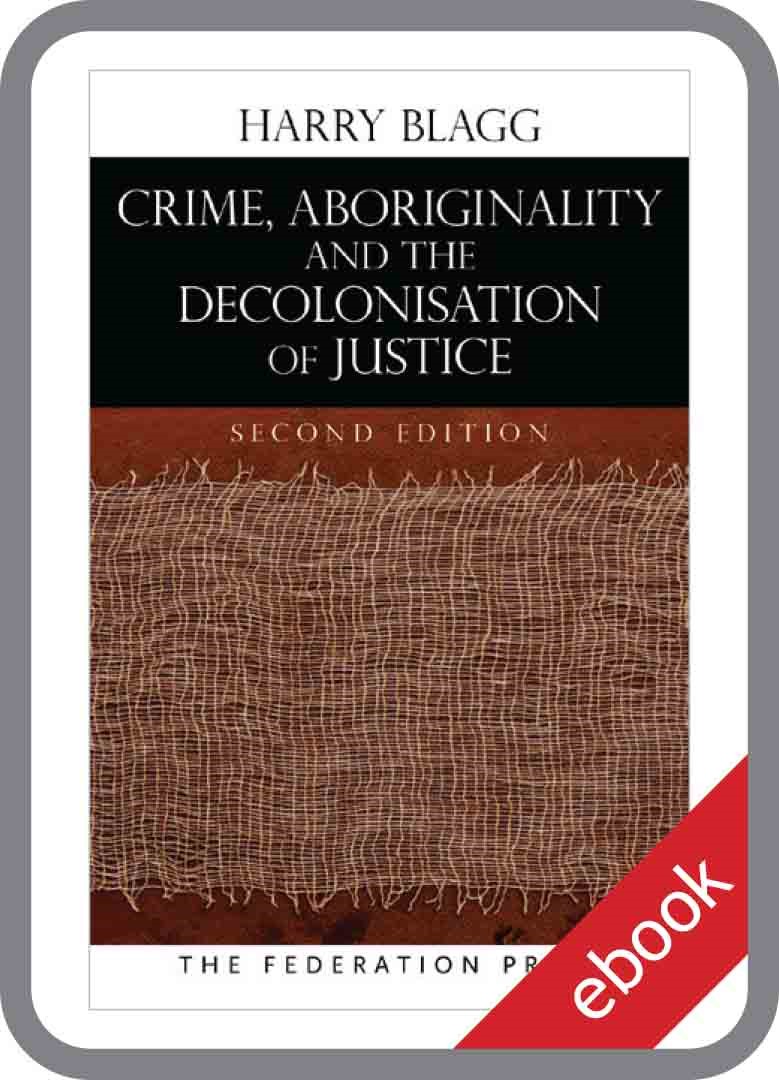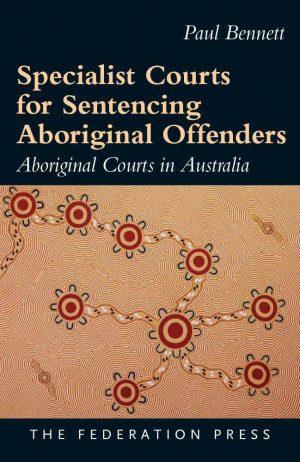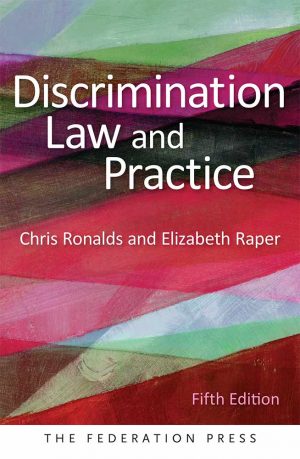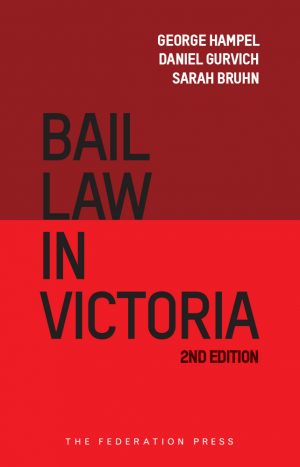Crime, Aboriginality and the Decolonisation of Justice explores contemporary strategies which might reduce the extraordinary levels of imprisonment and victimisation suffered by Aboriginal people in Australia. These are problems that continue to rise despite numerous inquiries and reports.
Harry Blagg disputes the relevance of the western, urban, criminological paradigm to the Aboriginal domain, and questions the application of both contemporary innovations such as restorative justice and mainstream models of policing. He also refutes allegations that Aboriginal customary laws condone violence against women and children, pointing to the wealth of research to the contrary, and suggests these laws contain considerable potential for renewal and healing. This book maintains that unresolved questions of colonisation, decolonisation and sovereignty lie at the heart of debates about criminal justice in post-colonial Australia. It explores the potential for ‘hybrid’ initiatives in the complex ‘liminal’ space between Aboriginal and non-Aboriginal domains, for example, Aboriginal community/night patrols, community justice groups, healing centres and Aboriginal courts.
This new edition covers emerging issues such as Foetal Alcohol Spectrum Disorders (FASD) and reports on the consequences of the Commonwealth Government’s contentious ‘intervention’ in remote Northern Territory communities in 2007.
Preface
1. Decolonising Criminology
2. Criminal Justice as Waste Management: Modernity and its Shadow
3. Aboriginal Youth: Culture, Resistance and the Dynamics of Self-destruction
4. Restorative Justice: A Good Idea Whose Time has Gone?
5. Aboriginal People and Policing
6. Aboriginal Self-policing Initiatives
7. Silenced in Court? Aboriginal People and Court Innovations
8. Family Violence
9. Aboriginal Customary Law: From Denial to Recognition
10. Aboriginal Customary Law: From Recognition to Abolition
11. Governance from Below: Community Justice Mechanisms, Crime and Disorder
Concluding Comments: Moving Forward
References
Index
Criminology is not a course that many law students seek to study. Desiring to master the rigors of the Priestly Eleven and move on to a legal career, law students focus on the practical aspects of becoming solicitors. Criminology is often dismissed as a side show.
Yet, when one examines some of
the most famous legal decisions of the United States and Australia, the extraordinary impact of criminology on court decisions makes it clear that modern court decisions are not always driven by traditional legal argument.
The text is straightforward and, despite its academic origin, a pleasurable read, relaying data, reviews and comments on the works of others, and, of course, Professor Blagg’s own point of view.
The book deserves to be read by any solicitor or counsel who is thrust into the growing volume of Aboriginal litigation.
Think of it as the textbook you would have studied had you not been in such a hurry to get through law school. Read full review…
Michael Morrisroe, Ethos, ACT Law Society, September 2017
The overrepresentation of Indigenous people in the criminal justice system in Australia continues to be our national disgrace. This is an important, if not vital, book. The first edition was published around the time of the federal government’s “intervention” in Northern Territory Aboriginal communities. This second edition is equally as important now as it was then and includes new chapters on emerging issues as well as investigating the “intervention” and its outcomes.
Blagg’s analysis is rooted in the premise that “in many crucial respects, the fundamental nature [of the relationship between the criminal justice system and Indigenous people] has remained unchanged since invasion when the system was employed as a tool of dispossession”. Blagg interrogates the colonial and post-colonial discourses which continue to inform conceptions of sovereignty and, in turn, policing.
This analysis provides a platform for the author’s critique of various elements of the system and his proposals for ongoing reform. Blagg argues that decolonising the relationship between Aboriginal and non- Aboriginal people by breaking the cycle of discursive violence visited upon Indigenous Australians is the only way to meaningfully heal that relationship. It is through such a process that a reduction of Indigenous incarceration rates and of violence within Indigenous communities might be achieved.
Adam Chernok, InPrint, Law Institute Journal Victoria, June 2017
Blagg’s is a deeply historical perspective, informed by his characterisation of the entire arc of the colonial narrative as one in which the police and the criminal justice system have been “the sharp instruments of dispossession”. More radically, Blagg asserts that “in many respects, the fundamental nature of this relationship [between police and Aboriginal people] has remained unchanged since invasion”. This mode of viewing contemporary police practices through the prism of history has recently gained an eminent proponent in US Supreme Court Associate Justice Sotomayor, who delivered a powerful dissent in similar terms in Utah v Strieff 136 S Ct 2056 (2016).
Yet Blagg must not be understood to be simply memorialising past wrongs; he seeks to draw lessons from them. So it is that each of the chapters in the body of this book takes a particular problem or policy issue, reflects upon it and seeks to bend it to future use. …
For Blagg, we will get nowhere without attending to, and respecting, Indigenous culture and the customary laws that were famously described by Justice Blackburn as “a government of laws, and not of men” (Milirrpum v Nabalco Pty Ltd (1971) 17 FLR 141, 267).It is Blagg’s belief that the preservation and promotion of Aboriginal law is crucial to establishing harmony and reducing criminal behaviour in Aboriginal communities, and Blagg makes his case convincingly. … more than enough in this new publication to demand the attention of scholars and policymakers alike. Read review…
Julian R Murphy, Australian Law Journal, 2017, 91
Aboriginal people are massively over- represented in the criminal justice system. They are among the most imprisoned people in the world. The rate of imprisonment of Aboriginal people continues to rise, increasing by 52 per cent in the last decade. Aboriginal prisoners comprised 27 per cent of the prison population last year. At the 2011 census, Indigenous people comprised just 3 per cent of the population. The rate of imprisonment of Aboriginal people is up to fifteen times that of non-indigenous people. …
The subject is approached from an academic perspective. The opening chapters carefully set the work within academic traditions in criminology, sociology and anthropology. The discussion of ontology, epistemology, teleology and liminal spaces may prove heavy going for readers unaccustomed to such scholarly discourse. It is, however, necessary to understand the theoretical framework behind Blagg’s views and recommendations. …
Blagg maintains … that our refusal to enter into a dialogue about Aboriginal law is at the centre of the problem. In his view, the violence within Aboriginal communities is not a product of Aboriginal culture. Traditional law does not condone physical or sexual violence. Rather he sees the violence within Aboriginal communities as a result of the impact of the negative and destructive aspects of non-Aboriginal culture imposed through the process of colonisation. Read review…
Bar News, NSW Bar Association, Summer 2016
This first edition of this work was extremely well received and won acclaim from many quarters. Harry Blagg of the University of Western Australia, is a leading academic in the field of aboriginal criminal justice. His observations of the problems concerning the difficulties facing indigenous persons in the Criminal Justice system are considered and perspicacious. In particular, he identifies that the imposition of the Western criminal justice system on the indigenous Australian community has failed in many respects as a result of its conflict with the customs and culture of our first people. He identifies how the system which is intended to protect the communities often has the opposite result.
Harry Blagg, however, does not merely criticise the shortcomings of the existing systems. He goes to great lengths to explain the benefits of the process of “governing from below” in relation to the administration of Criminal Justice in aboriginal communities. He identifies the benefits derived from Family Violence initiatives, diversionary pathways for young offenders, Aboriginal and Circle Sentencing Courts and other community justice mechanisms. In this respect the second edition of this work builds upon the first and it includes new sections directed to issues such as Foetal Alcohol Spectrum Disorders (FASD) and the consequences of the Commonwealth Government’s contentious “intervention” in remote Northern Territory communities. Although Mr Blagg’s views will not receive universal concurrence, they are worthy of deep consideration in relation to this important area. Let’s face it, for whatever reasons, the present system cannot be regarded as an overwhelming success.
Queensland Law Reporter – 11 November 2016 – [2016] 44 QLR
Reviews of previous edition:
Crime, Aboriginality and the Decolonisation of Justice is by no means a pessimistic book. Blagg describes and analyses in intricate detail a range of Aboriginal initiatives which, despite chronic financial insecurity and governmental neglect, are slowly reforming justice in Aboriginal Australia. Space precludes discussion of what Blagg calls ‘governance from below’ or ‘community justice mechanisms’ but these include community patrols, Aboriginal and Circle Sentencing Courts, community justice groups and Family Violence initiatives. In all these initiatives, Blagg highlights the role of Aboriginal women and the need to acknowledge the limitations of non-Indigenous feminist theorising in accounting for the experiences and views of Indigenous women.
Underlying all attempts at justice reform in Australia is the relationship between non-Indigenous law and Aboriginal Customary Law. Drawing on major research in Western Australia, Blagg argues against both the media-fuelled sensationalised caricature of customary law (obsessed with ‘spearing’) and the inaccurate mythology of Aboriginal male entitlement to violence and sexual abuse peddled (often in prison) by disenfranchised Aboriginal men. Instead, Blagg calls for a serious consideration of the potential of customary law to re-establish some of the positive traditional aspects of Aboriginal living.
Driven by a passionate concern to improve both social and criminal justice for Aboriginal people, Blagg confronts a host of highly controversial issues and, as a white, male, British-born researcher, his willingness to do this is courageous. But while his views may draw criticism from some quarters there will be few who challenge his credentials to express them. Crime, Aboriginality and the Decolonisation of Justice is based on the author’s research of, and commitment to, Aboriginal people in Australia over a period exceeding fifteen years. It is suffused with a depth of understanding and respect that should make it a landmark publication.
The Howard Journal, July 2009, Professor Anne Worrall, Keele University, UK
Blagg’s book has a refreshing premise: Indigenous crime is not integral to Indigenous society. Blagg goes head-to-head with the contention that violent and sexual crimes are tolerated by customary law. …
By contrast, Blagg’s study demonstrates that there is no such toleration of violence and sexual assaults in Indigenous communities. Blagg points to consultations with remote communities in the Kimberley region, as part of the Western Australian Customary Law Inquiry, which found no acceptance of so-called traditional violence. …
A major strength of Crime, Aboriginality and the Decolonisation of Justice is that it marries a theoretical critique of the existing criminal justice system (particularly the role of policing) with practical examples of alternative community justice programs which resonate with Blagg’s notion of ‘restorative vision’. However, at the same time, a shortcoming of the book is that the approach advocated by the author remains, at times, tied to existing schemes (such as community patrols), rather than reflecting on how Indigenous laws may operate free from government-imposed outcomes.
Overall, Blagg’s text represents a marked departure from the colonial legacy in government approaches to Indigenous crime. It is a rigorous and theoretically informed attempt to shift the debate from a government-controlled process to a hybrid process evolved from the current realities in Indigenous communities and the strengths of Indigenous structures. …In the current context, the community justice programs that Blagg discusses provide a constructive alternative to the top-down intervention into Indigenous communities.
Current Issues in Criminal Justice, March 2009, Thalia Anthony, University of Sydney, Law School
You may ask, what could a book titled: Crime, Aboriginality and the Decolonisation of Justice, have to do with health, and why would the Medical Journal of Australia consider it worth a review?
Harry Blagg is one of Australia’s most eminent researchers on criminal justice including family violence, in Aboriginal communities. His research, conducted in partnership with Aboriginal communities is widely published, hence he brings particular expertise, which makes this book both confronting and thought-provoking. Blagg refutes allegations that Aboriginal customary laws condone violence against women and children, pointing to the wealth of research to the contrary. He suggests these laws contain considerable potential for renewal and healing. The book, while easy to read if you know the subject, will confront some readers, and hopefully force them to think more deeply about the decolonisation of justice. Hopefully some readers might choose to also think more deeply about the deconstruction of the medical system, so that the development of hybrid initiatives of health and wellbeing might also be possible. … At $49.95, the cost is a little more than I would have anticipated for a book of just over 200 pages, but is non-the-less value for money, in so far as it has me thinking of links between law and health; gaps and possibilities – more particularly the need to explore, rather than ignore, liminal spaces between Aboriginal notions of ceremony as forms of transition including syncretic changes in status relationships between social domains – social domains that construct justice and health or ill-health, and crime.
Medical Journal of Australia, 2008, Judy Atkinson, Professor of Indigenous Australian Studies, Southern Cross University
Harry Blagg has written a unique book that fills a yawning gap in Australian criminal justice literature … a much needed resource for advance undergraduate teaching … can only enliven Indigenous scholarship and activism.
It is the articulation of a process for systemic change, and the breadth and consistency of its decolonising vision, rather than the prescription of a definitive set of solutions, that mark Blagg’s achievement in this book.
Australian Journal of Human Rights, Vol 14 (1)
Harry’s book offers insight into the role of the criminal justice system in continuing the colonisation of Indigenous Australians; it highlights the limitations of the well-intentioned “new justice” approaches; and focuses attention on the misunderstood role of Aboriginal customary law…
Overall Harry presents us with a detailed and provocative discussion of the limitations of mainstream and many “alternative” justice responses to violence in Aboriginal communities. He proposes that the way forward is to develop hybrid, community-owned initiatives in the liminal space between the non-Aboriginal and the Aboriginal domain.
Queensland Centre for Domestic and Family Violence Research, June 2008







